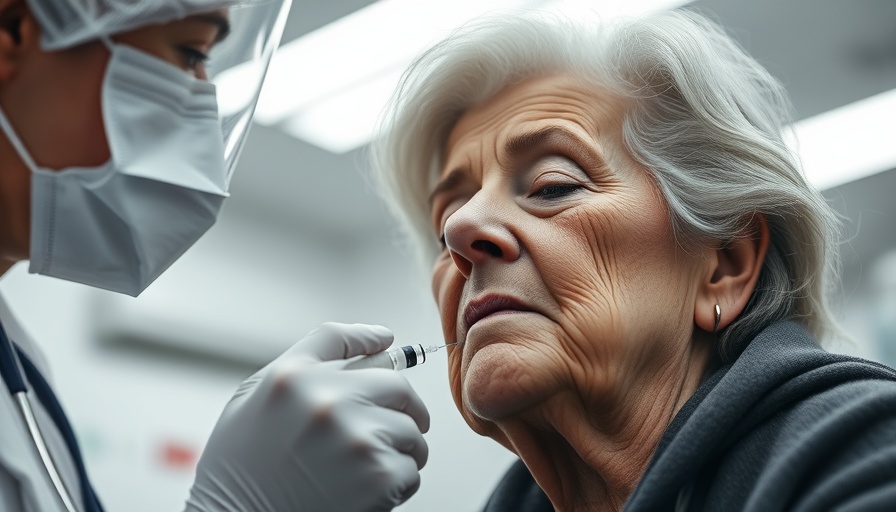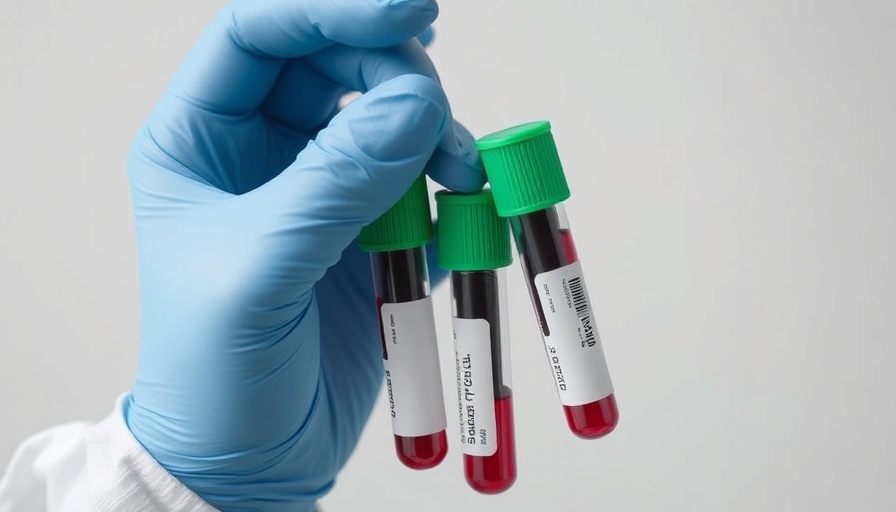
Understanding the Shingles Vaccine and Its Surprising Benefits
As we age, our bodies face various health challenges, making it essential to stay informed about preventive measures. A recent study published in the European Heart Journal unveiled an exciting finding: adults who receive the shingles vaccine not only protect themselves from shingles, but they also lower their risk of heart disease by an impressive 23%. This protection can last for up to eight years after vaccination, highlighting the shingles vaccine's potential role in broader health contexts.
What Is Shingles and Why Is Vaccination Important?
Shingles, caused by the reactivation of the varicella-zoster virus—the same virus that leads to chickenpox—affects one in three adults globally. The illness can lead to serious complications, especially in those aged 50 and older. Therefore, vaccination is crucial as it offers over 90% protection against developing shingles. Recent discussions among health experts have shifted the perception of shingles from merely an infectious disease to a condition with potential links to chronic illnesses like cardiovascular disease.
How the Study Was Conducted: Key Findings
The study analyzed medical data from over 1.2 million adults aged 50 and above in South Korea, revealing a statistically significant 23% reduction in cardiovascular events, including heart attacks and strokes, among those vaccinated. These findings emphasize the importance of vaccinations in adult health, acting as a preventive approach not just against infectious diseases but also against severe chronic conditions.
The Broader Implication of Vaccination on Heart Health
Unlike typical medications or treatments, vaccinations present a proactive approach to health management. The discovery that the shingles vaccine may contribute to heart health opens avenues for further research into how vaccines can impact overall quality of life. Sooji Lee, MD, the study's lead researcher, urges continued exploration into the connection between infectious diseases and chronic health outcomes, emphasizing that vaccination should be part of comprehensive health strategies for aging populations.
Comparative Benefits: Beyond Shingles
While the primary goal of the shingles vaccine is to prevent shingles, its role in reducing the risk of other diseases draws attention to the interconnectedness of our health systems. Previous studies have suggested vaccines could also lower the risk of conditions like dementia, reinforcing the idea that protecting against one viral threat may provide secondary health benefits. These findings could encourage more people to get vaccinated, knowing their decision extends beyond immediate protection.
Understanding the Risks of Shingles and Heart Disease
The potential connection between shingles and heart disease is significant. Shingles can lead to complications such as postherpetic neuralgia, impacting physical well-being and potentially increasing stress—a known risk factor for heart issues. By choosing to be vaccinated, individuals empower themselves not only against shingles but also in fostering heart health and overall wellness.
Embracing a Healthier Future Beyond Vaccinations
It's vital to accompany vaccinations with holistic lifestyle choices. Engaging in regular exercise, maintaining a balanced diet, and prioritizing mental well-being are all crucial components of healthy living. As we adapt to new health data—such as the shingles vaccine's protective qualities—it's an opportunity for individuals to embrace wellness in all aspects of their lives.
Take Action: Why Get Vaccinated?
If you or a loved one is over 50, consider scheduling a vaccination appointment. The shingles vaccine not only shields you from the painful shingles outbreak, but it's also a proactive step in safeguarding your heart health for the years ahead. By staying informed and making healthy choices, we can foster a community where health and wellness flourish.
In conclusion, recognizing the potential long-term health benefits of vaccinations—like the shingles vaccine—encourages all readers to prioritize their health and well-being. The evidence suggesting a link between the vaccine and reduced risks for chronic diseases is a bright beacon for proactive health strategies. Let's embrace these discoveries, spread awareness, and take positive actions toward healthier outcomes.
 Add Row
Add Row  Add
Add 




 Add Row
Add Row  Add
Add 

Write A Comment